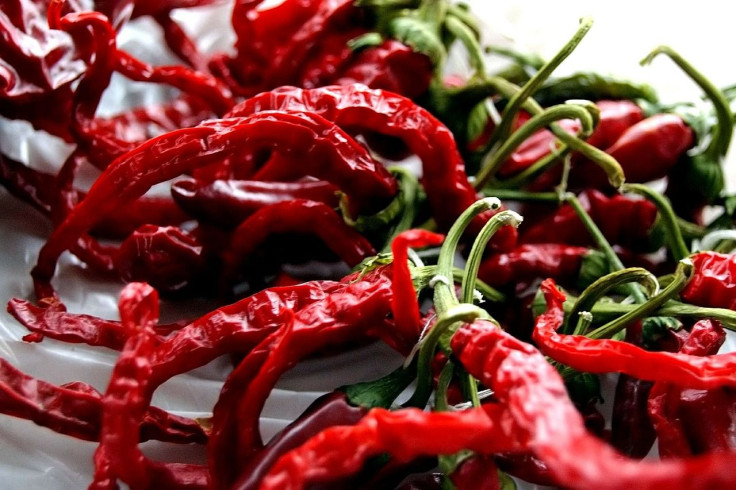Breast Cancer Latest Update: Scientists Discover Two Surprising Ways To Block Aggressive Cancer Growth
German researchers have found that chili peppers — or the scent of a fresh sea breeze — could stop breast cancer in its tracks.
A study in the journal Breast Cancer: Targets and Therapy says that capsaicin, the substance that makes peppers hot, and a chemical called helional that mimics the scent of sea air both inhibit tumor growth in the most aggressive forms of breast cancer. Chemotherapy is currently the only treatment in those cases, but the capsaicin and the helional acted upon a receptor found in tumor cells in a way that could lead to new types of treatment. A statement from Ruhr-Universitaet Bochum, the university in western Germany where the researchers were based, explains that when the substances were added to cell cultures containing the receptors, “the cancer cells divided more slowly. Moreover, the treatment caused tumour cells to die in larger numbers.”
Read: Lasers and Ocean Bacteria Cure Prostate Cancer
Because the cells left behind could no longer move as quickly as before, the university noted (original statement in German), the researchers deduced that the cells were being prevented from forming metastases, which are secondary cancerous growths that spread from the original tumor site.
The receptor in question, TRPV1, which is sensitive to temperature and pH levels, has previously been studied and scientists have explored manipulating it for therapeutic value. It is part of a group of proteins called transient receptor potential channels — or TRP channels for short — that play a role in the development of some diseases and “have been shown to influence cancer cell growth,” the study says.

Although the exact mechanisms behind capsaicin’s effect on breast tumor growth are not understood, the study says these new findings suggest that specific substances “could significantly enhance breast cancer cell death, even in the most aggressive breast cancer subtype.”
That doesn’t mean eating chili peppers or spending time at the beach will prevent breast cancer — according to the university, “An intake via food or inhalation is insufficient for this purpose.” Rather, scientists could potentially design drugs that imitate capsaicin’s effect on tumor cells.
There’s still more work to be done on investigating the TRPV1 receptor as a potential target for breast cancer treatment, according to the study, “not least because its functionality differs in healthy breast cells and cancerous cells.”
Source: Weber LV, Al-Refae K, Wölk G, et al. Expression and functionality of TRPV1 in breast cancer cells. Breast Cancer: Targets and Therapy. 2016.
See also:
Dirt May Hold New Cancer Medicines
Published by Medicaldaily.com



























